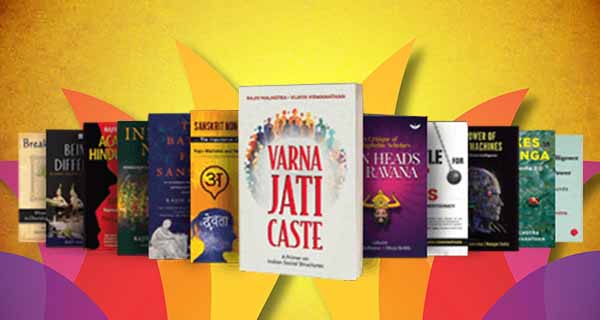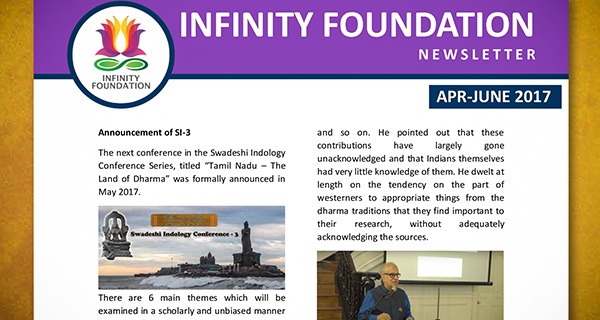International Congress of Vedanta
International Congress of Vedanta
13th International Congress of Vedanta � September 12-15, 2002
International Congress of Vedanta, founded in 1986 at Miami University , Oxford, Ohio, is the focal point for meeting of North American scholars specializing in all aspects of Indian philosophy and religion. In the past, the Congress has also celebrated the birth centennial of S. Radhakrishnan 1988), the 1200th anniversary of Sri Sankaracharya (1990), the centennial of Swami Vivekananda’s sojourn to America and his participation in the World Parliament of Religions (1992), birth centennial of J. Krishnamurti (1995), and the 700th anniversary of sanjeewan samadhi of Sri Jnaneswara (1996). International Congress of Vedanta also held its meetings in Madras, Rishikesh and Hyderabad, India, and in Port-of-Spain, Trinidad, in order to facilitate better interaction between scholars in India and the West.
Location: The 13th Congress will be held in the Marcum Conference Center of Miami University, Oxford, Ohio, between September 12 and 15, 2002. Oxford, Ohio, is situated near Cincinnati and Dayton, Ohio, a 30-45 minute drive from each. The Cincinnati and Dayton airports are an hour’s drive from Oxford. The Marcum Conference Center offers excellent modern conference facilities with conference, seminar, presentation, dining and guest rooms. The Congress includes in its program plenary presentations, panel sessions, symposium discussions and individual papers on (a) Yoga, (b) Meditation and (c) Ayurveda (d) and general topics in Indian philosophy and religions.
The congress also will include in its program a few sessions in Sanskrit medium. Among the one hundred participants who will attend the conference include:
- Ashok Aklujkar (Univ. of British Columbia)
- J.G. Arapura (McMaster University)
- Anindita Balslev (Univ. of Copenhagen)
- Mandakranta Bose (Univ. of British Columbia)
- Arindam Chakrabarti (Univ. of Hawaii)
- Fred Dallmayr (Univ. of Notre Dame)
- Tom Egenes (Maharishi University)
- Marzenna Jakubczak (Silesian Univ., Poland)
- Subhash Kak (Lousiana State Univ)
- R. L. Kashyap (Purdue Univ.)
- Ashok Malhotra (SUNY-Oneonta)
- Michael Myers (Washington State Univ)
- M. Narasimhachari (Univ. of Madras)
- Stephen Phillips (Univ. of Texas)
- Olle Qvarnstrom (Univ. of Lund-Sweden)
- Anand Rangarajan (Univ. of Florida)
- K. L. Seshagiri Rao (Univ. of South Carolina)
- T.S. Rukmani (Concordia Univ)
- Judy Saltzman (California Poly. St.Univ)
- Arvind Sharma (McGill Univ)
- Stuart Sovatsky
- Ian Whichler (Univ. of Manitoba)
- Boyd Wilson (Hope College)
- Klaus Witz (Univ. of Illinois)
Further details of the conference may be obtained by clicking the following link or by contacting Professor Pappu:
https://www.infinityfoundation.com/mandala/i_pr/i_pr_vedanta_13_frameset.htm
Professor S. S Rama Rao Pappu
Department of Philosophy
Miami University
Oxford, Ohio, 45056
Phone: 513-529-2439
E-Mail: PAPPUSS@MUOHIO.EDU
12th International Congress of Vedanta – September 2000
Vedanta meet draws scholars from all over
by Abraham Thariath
Article from India Abroad Daily News (Copyright © 2000 India Abroad Publications, Inc)
New York: The ancient Indian philosophy of Vedanta was discussed by more than a 100 Indian and Western scholars at one of the largest academic conferences of its kind in the western hemisphere.
The forum was the recently held five-day 12th International Congress of Vedanta at Miami University, Ohio.
Vedas or the ancient Hindu scriptures are the earliest philosophical and cultural source of Indian thought. Everything that flows from the Vedas or fulfills their purpose is called Vedanta. The basic philosophy of the Vedas is that our real nature is divine, god or ‘Brahman’ as in the ancient texts, exists in every living being.
Brock University president David W. Atkinson set the tone for the congress with his inaugural address on ‘new millennium and a fresh start: Indian philosophy and the crisis of credibility.’
In a three-part discussion on ‘Brahman in physics,’ or (physics and the divine) the panelists attempted to show how conclusions in modern physics were parallel to those of Vedantic cosmology.
American author and physicist Fritjof Capra’s famous book ‘The Tao of Physics,’ also shows how findings of modern physics support the Taoist cosmology in China. Brahman in Indian philosophy is similar to Tao in Chinese philosophy.
In the discussion, Gopala Rao of the Johns Hopkins University pointed out that the start of the present cycle of creation, growth and annihilation as given in Vedic cosmology came “amazingly close” to the dating of the origin of earliest life forms on earth as per modern science.
The highlights of the conference included a keynote address by professor Raman on ‘spirituality and science from the Hindu perspective’ an inaugural Infinity Foundation Distinguished Lecture, as tribute to American philosopher Karl H. Porter for his multi-volume encyclopedia on Indian philosophy.
Infinity Foundation, based in Princeton, New Jersey promotes Vedantic philosophy through various projects, including providing grants to Ph.D. students working in the area. The 12th Vedanta congress was held with the support of the foundation.
The congress was started in 1986 as an academic seminar on Vedanta to promote study, research and exchange ideas among scholars in North America. It has, however, expanded into a major conference, drawing nearly 150 scholars specializing in Indian philosophy from all over the world.
This year, the conference drew scholars from the Britain, Canada, Denmark and the U. S., besides India. The congress has a membership of 1,000 scholars, half of them based in India. It has been held thrice in India and once in Trinidad. A mini- conference on Vedanta was also organized in Moscow. The next congress is slated for September 2002 at Miami University.
India Abroad News Service
Copyright © 2000 India Abroad Publications, Inc.



